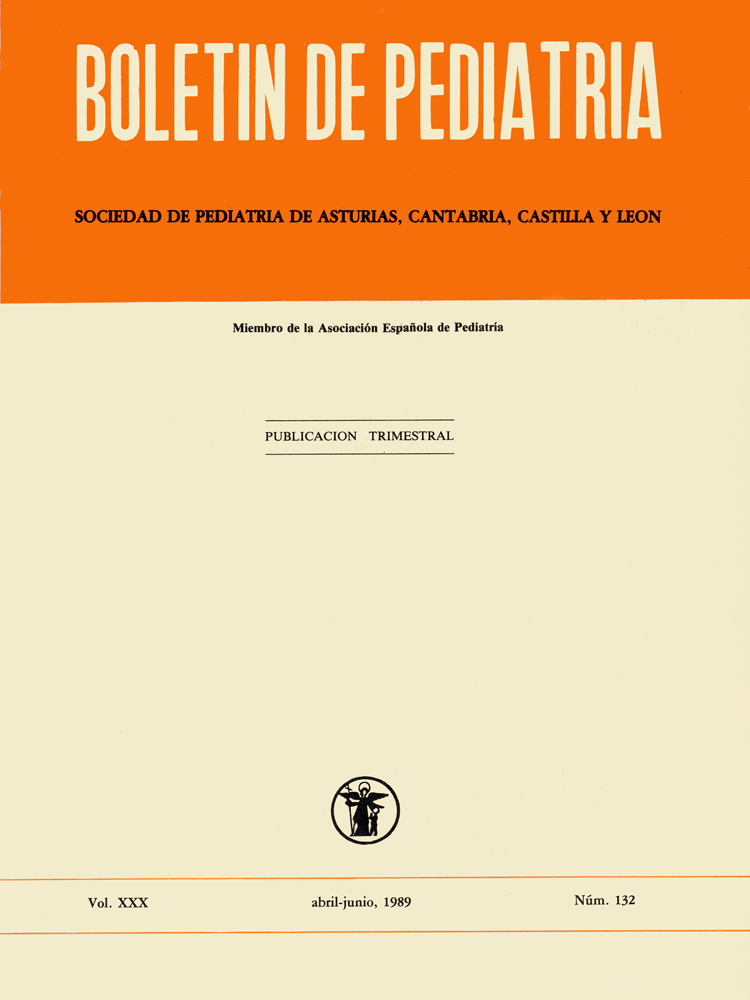Abstract
A Holter register was carried out on a group of 20 babies aged between 1 and 7 days, taking into account the following factors: age, sex, weight, height. cadiotoracic index, ECG, gestatianal age, and Apgar test. In the neonatal period the heart rate ranged between 162±14 and 101±6, without any evidence of the influence of circadian rhythm; the decrease in heart rate was produced in the immediate postprandial time without diurnal or nocturnal influence. 55% of the babies were male, the remaining 45% female. The average age 3,6±0,6; Apgar in a minute 7,4±0,7; cardiotoracic index 61±5,4. In the ECG, the thythm was sinusal in 95 %. The heart rate was 139±18; QRS angle 122±51; P angle 38±23; T angle 102±124; spaces (in milliseconds): PR 102±18; QRS 48±18; QT 249±30. The definite influence of circadian rhythm on the heart rate was stabilized chronologically, commencing with a decrease at 22,64±0.86 hours and subsequent recuperation at 8,50±0,7. The difference in the heart volume was also significant as well as rate, QRS angle and spaces in the time. We therefore conclude that the circadian rhythm of heart rate is stabilized in the neanatal period.

This work is licensed under a Creative Commons Attribution-NonCommercial 4.0 International License.
Copyright (c) 1989 Boletín de Pediatría
